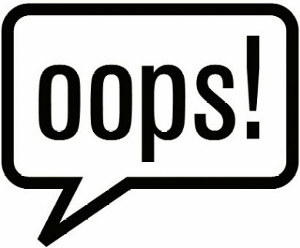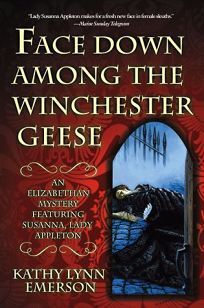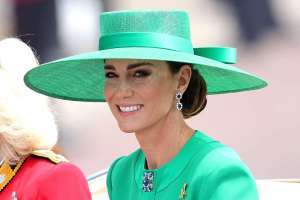Why Getting It Right Should Matter
 Kathy Lynn Emerson here, fired up to tackle an old pet peeve of mine—writers (and editors and reviewers) who don’t seem to care about using forms of address correctly. Just because a book is fiction doesn’t mean it’s okay to play fast and loose with getting the details right. The only exception I can think of would be in the fantasy genre. Otherwise, if an author’s book includes characters with titles, especially British titles, that author had darned well better take five minutes to learn the rules.
Kathy Lynn Emerson here, fired up to tackle an old pet peeve of mine—writers (and editors and reviewers) who don’t seem to care about using forms of address correctly. Just because a book is fiction doesn’t mean it’s okay to play fast and loose with getting the details right. The only exception I can think of would be in the fantasy genre. Otherwise, if an author’s book includes characters with titles, especially British titles, that author had darned well better take five minutes to learn the rules.
I was reminded of this issue while editing the third and fourth Face Down mysteries for new trade paperback editions. A real royal lady appears briefly in both books. The sister of Queen Jane (“the nine-days queen”) she’s not called Lady Mary or Lady Grey. As Queen Elizabeth’s cousin and heiress presumptive, she’s properly referred to as The Lady Mary. And although my sleuth’s husband, who has been knighted, is Sir Robert, his wife is Lady Appleton, not Lady Susanna. Using Lady before a first name indicates that person is the daughter of a peer, which Susanna is not. It was a source of great frustration to me that a blurb on the back cover of the original edition of the first book in the series referred to her as Lady Susanna. The person who wrote the blurb got it wrong and the editor refused to alter a quote. The error was repeated in a review quoted above the title on front cover of the third entry, despite the correct form appearing just below the title. Can you say arrrgh!

The forms of address problem raised its ugly head again some years ago when I was asked to blurb an historical novel in which a character deliberately chose to be addressed by one of her lesser titles. I really liked the book, but that stopped me in my tracks. I felt obliged, since the novel was still in production, to point out to the editor that the author’s choice was not only odd but also contradictory, since the character was portrayed as egotistical and prideful. He passed on my comment, and author basically told me to mind my own business.
As it turns out, there are occasions when someone might choose not to use a title. The Duchess of Kent, for example, apparently styled herself as “Mrs. Kent” when she taught music, but for the historical period of the novel in question, such a choice would have been unlikely. Moreover, it would have been a simple matter for the author to make the necessary changes to get it right.
No one cared, least of all the editor.

publication date July 11
I see so many novels (and newspaper headlines) that get forms of address wrong that, periodically, I check to make sure I’m not the one who’s mistaken. I’m not. Other writers and their copy editors simply didn’t bother to get the details right. In one otherwise fascinating historical novel, set in the late sixteenth century, the author consistently referred to a knight as Sir Lastname instead of Sir Firstname. That error jerked me out of the story every single time. More recently, I read a mystery in which Dame Agatha Christie was referred to as Dame Christie. To illustrate with a more modern example, Dame Judi Dench or Dame Judi is correct. Dame Dench is not.
 It isn’t just U. S. authors who get things wrong, either. British tabloids are major offenders, which may explain why people are so confused about titles. Referring to the wife of the heir to the throne as Kate Middleton, her maiden name, may make it easy to identify her, but it’s wrong. So is referring to her as Princess Catherine. She is a princess only by virtue of her marriage to the Prince of Wales, so she’s “Princess William.” Her official title is “The Duchess of Cambridge.”
It isn’t just U. S. authors who get things wrong, either. British tabloids are major offenders, which may explain why people are so confused about titles. Referring to the wife of the heir to the throne as Kate Middleton, her maiden name, may make it easy to identify her, but it’s wrong. So is referring to her as Princess Catherine. She is a princess only by virtue of her marriage to the Prince of Wales, so she’s “Princess William.” Her official title is “The Duchess of Cambridge.”
Yes, writing about members of the peerage may require a little research, but it’s not that difficult to get the details right, and forms of address for knights and their ladies isn’t complicated at all. Researching the proper weapons for your characters to use takes far more time and effort.
Not important, you say? Well, consider this—when a reader is stopped dead by an avoidable error, she or he may well react by never reading that author again. It’s even possible that the book in question will be hurled against the wall. Do you want to risk it?

Kathy Lynn Emerson/Kaitlyn Dunnett has had sixty-four books traditionally published and has self published others. She won the Agatha Award and was an Anthony and Macavity finalist for best mystery nonfiction of 2008 for How to Write Killer Historical Mysteries and was an Agatha Award finalist in 2015 in the best mystery short story category. In 2023 she won the Lea Wait Award for “excellence and achievement” from the Maine Writers and Publishers Alliance. She was the Malice Domestic Guest of Honor in 2014. She is currently working on creating new omnibus e-book editions of her backlist titles. Her website is www.KathyLynnEmerson.com.
Lea Wait's Blog
- Lea Wait's profile
- 509 followers



